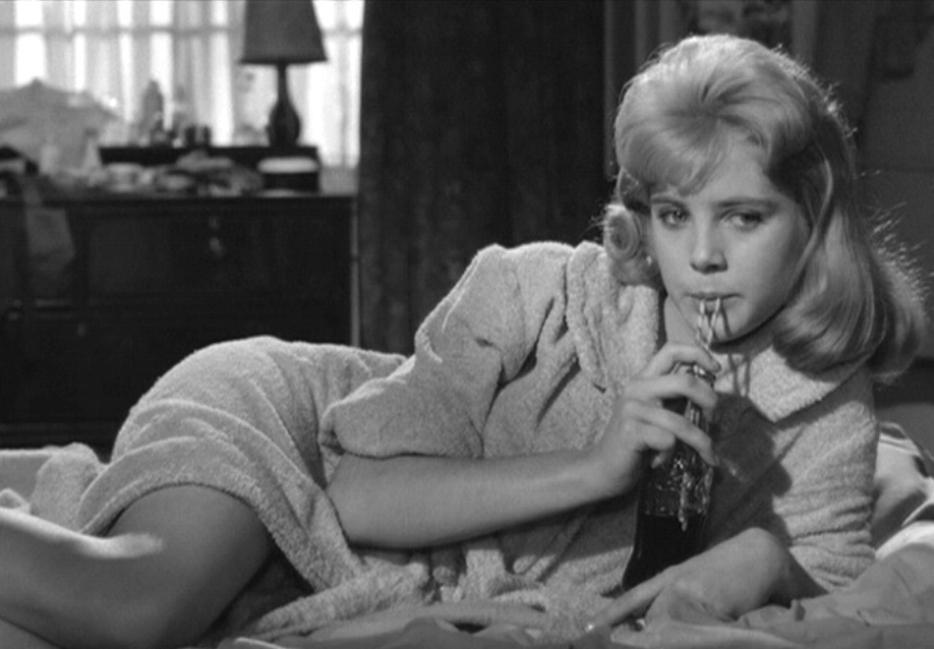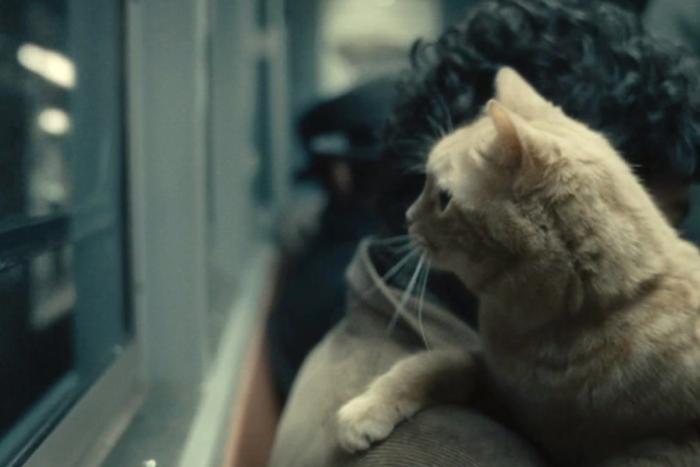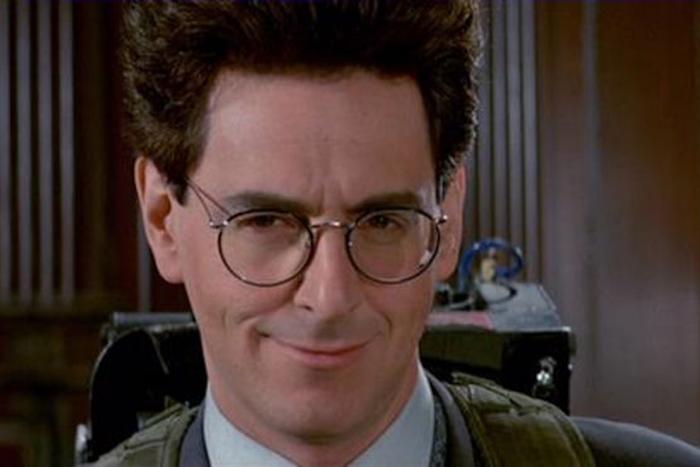1.
A friend of mine was once a witness in the trial of a child molester. Driving in her hometown, she had seen a man take a child who wasn’t his, and called the cops. She told me this by way of explaining why, several years later, she could not watch a Liam Neeson movie, or an episode of Law & Order, in which a child is stuck in danger. She has never read Nabokov’s Lolita.
I thought of this when, on the night before the Super Bowl, I joined the outcry over Woody Allen’s alleged crime. Many people said they’d never watch his movies again. I don’t usually want to watch his movies anyway—save Annie Hall, which I think of as a Diane Keaton film, and Another Woman, a Gena Rowlands film—but now my feeling is more that I just… can’t. Publicly, I’ve made easy denouncements; privately I’ve been a little traumatized. In a piece listing the incest references, child molestation jokes, and general teen-eyeing perviness in several of Allen’s movies and one of his plays, Stephen Marche had an appropriate moral reaction: “What the hell have we been watching all this time?”
Over a few months in 1992, 12 years of Woody and Mia went down like a tower condemned. Woody went public with Soon-Yi. Mia went all-out with the allegations of Dylan’s abuse. “Mia’s Story” in Vanity Fair, Woody’s story on 60 Minutes: for years, coverage of the fallout was everywhere, only the “everywhere” was smaller and whiter and bougier then, and not a single piece (that I can find) referenced “the court of public opinion.” There was anger and disgust, but there was also a sense that Allen, being soi disant eccentric, unconventional, and unlike other people, might not be subject to our rules.
There was another sense, more common, that the affairs should not be public at all. In his review of Husbands & Wives, appearing in the same September 21, 1992 issue of New York magazine as Phoebe Hoban’s exhaustive report on the saga, David Denby delivered a callow pronouncement: “We know more about Woody Allen’s private life than an audience has the right to know. (As far as I can recall, CNN never did corner Proust’s housekeeper, and Time unaccountably failed to interview Dostoevski’s children on the subject of Daddy’s games in the attic.)”
This smudgy delineation—between Allen’s “private life” and Woody’s “movies”—obscures the fact that no one has ever told us more about the former than Woody has in the latter11Naturally, no matter how much you share publicly of your private self, and no matter how much or little you disguise it, nobody is entitled to know more. Even Kim Kardashian is allowed to hate snoops. However, if there’s any crime in the world that should be a matter of public record, it is child abuse.; in Annie Hall, he even revealed the code name, “Max,” he used to protect his famous privacy in public.When he made Husbands & Wives (1992), Mia was months from finding out about Soon-Yi, although he must have suspected she would, and perhaps even left the nude photos for her to find, because: 1. Husbands & Wives, which has Woody only kissing the 21-year-old student before attempting to patch things up with Mia, is nothing if not a distortionist, self-serving appeal to public opinion; 2. Husbands & Wives opened in 800 theatres in America, by far the biggest opening of Allen’s 26 films to date. Crime pays, especially when you can make a spectacle of it; the cruel part of such a spectacle is that, if the crime turns out to be true, you’ve made your audience complicit. Faced with new testimony, and the same evidence in new fluorescent light, why wouldn’t we react by staging a show trial?
Only I don’t think like a juror, deciding how much of the unseen I should believe. It’s enough to have been a witness at the movies. The content of an artist’s soul is revealed in the character of his art, so that Wagner’s music thunders like fascism; Bukowski’s lines feel like wife-beating; Caravaggio paints like a murderer (but a murderer for love); and Woody Allen makes movies like a tiny, tweeny pedophile, one who believes that adulthood corrupts, children are pure of heart, and purity itself is good. By this logic, evinced most strongly in the moral universe22In Bullets over Broadway (1994), Sheldon Flender says that “an artist creates his own moral universe.” of Manhattan, when a child appears to participate willingly in her own molestation, her molester—because the child can’t do wrong—is not, after all, a bad man. (Pauline Kael, 1979: “What man in his forties but Woody Allen could pass off a predilection for teen-agers as a quest for true values?” But there are few quests more conventional and cliched than this one, and in believing Allen to be remarkable, we gave him much too much power to abuse in his “private life.”)
If what I feel is in fact a form of witness guilt, what I crave is a manner of confession. The good guy writers who rush to condemn Woody Allen denialism as “rape culture” do not reassure me at all. What is it for a man in possession of a dick to glibly invoke that term? Like, “tag, not it!” I would almost rather read a man explaining how he struggles with the impulse to rape—I’d admire it, anyway—which brings me, like Joyce Carol Oates, to Lolita.
I read it too late, a little after high school. Having fled my parents’ religion, I had yet to find a new schema, like feminism, in which to locate my responsibilities to other people, and I lived with a low-level amorality. My shoplifted copy of Lolita had on it a pair of children’s shoes and a quote from Vanity Fair declaring it “the only convincing love story of our century,” which seemed totally plausible, given how much the second half made me cry (which was, at the time, my main criterion for judging the value of a work of art). No part of it perturbed me in the slightest. I was Nabokov’s ideal recipient, in that I read for beauty and would have rather burned a book than deconstructed it, but if I’d had to say Lolita was about anything other than love destroyed, I would have said it was a biography of Britney Spears.
When I read it again, at 23, I knew more of Nabokov, and thought Humbert Humbert was a brilliant parody of the novelist himself, with his authorial high-handedness; his ponderous, ESL diction; his Old World mien; and, at the same time, his thorough obsession with America (signified by Dolly). Yet, if it were allegory, why the gratuitous descriptions of girl-flesh? I felt less comfortable. At 25, in and out of a long, unbalanced relationship, I read Lolita as a cautionary tale (again, too late): I thought Nabokov was painting not the pervert but the norm in certain urbane, progressive circles. Humbert Humbert was merely a melodramatization of every arrogant, “unconventional” man who never wants his (much younger, potentially more successful) girlfriend to grow up, or to be his equal, and in fact finds it hard to believe that he has any equals at all.
The other day, Oates asked on Twitter whether it isn’t contradictory to denounce Woody Allen and praise Lolita. This is so prima facie bananas that I can only, maybe a bit stretchfully, assume that (like many of us) she has watched Woody’s movies for so long that she thinks of him only as a little man on screen. On this premise, I can answer her question: We denounce Woody (the character, in the movies) because he never fully realizes what he does, nor wonders what it does to anyone else, examining only the consequences for himself; we praise Humbert Humbert, even while we loathe him, because for all his self-exceptionalizing grandiosity, he manages to get a grasp on the tragedy of his crime, both for him and for Dolly, and tries in his own way to set the ending right.
The character of Woody shares with the character of Humbert many things, among them an acid tongue; a disdain for low or popular culture; a misanthropy that manifests sometimes as anhedonia, sometimes as social anxiety; and a lasting scorn for the “handsome woman” (to use Humbert’s phrase), of whom Cate Blanchett in Blue Jasmine is the ultimate mockery—but in his stories, unlike Humbert’s, he never gets past Part One.
When Charlotte Haze reads her husband Humbert’s diary, she cries. She screams insanities. She swears he’ll “never, never see that miserable brat again.” His response is classic Allen [I’ve inserted below some choice quotes from his segment on the 1992 60 Minutes special, and from his February 7 op-ed in the New York Times].
“You are ruining my life and yours,” I said quietly. “Let us be civilized people [“Let us be logical,” or “any rational person would see…”]. It is all your hallucination [“The sheer illogic of such a crazy scenario seemed to me dispositive”]. You are crazy, Charlotte [“Mia gave me a very, very very chilling Valentine, meticulously worked on. One hesitates to say psychotically worked on…”].”
...
I set out two glasses (to St. Algebra? To Lo?) and opened the refrigerator. It roared at me viciously while I removed the ice from its heart. Rewrite. Let her read it again. She will not recall details. Change, forge. Write a fragment and show it to her or leave it lying around.
Husbands & Wives and Manhattan are just such fragments. Lolita, a novel in the shape of a memoir, has the lasting light of truth—told slant, yes, but in full. Near the end of it, Humbert goes to see the barely grown, but “hugely pregnant,” Dolores Haze. It is a terrible scene. She tells him how he too was tricked.
Well, did I know that he [Clare Quilty, another molester, and a playwright, with whom Dolly escapes Humbert at age 14] had known her mother? That he was practically an old friend? That he had visited with his uncle in Ramsdale?—oh, years ago—and spoken at Mother’s club, and had tugged and pulled her, Dolly, by her bare arm onto his lap in front of everybody, and kissed her face, she was ten and furious with him? Did I know he had seen me and her at the inn where he was writing the very play she was to rehearse in Beardsley, two years later? Did I know—It had been horrid of her to sidetrack me into believing that Clare was an old female, maybe a relative of his or a sometime lifemate—and oh, what a close shave it had been when the Wace Journal carried his picture.
The Briceland Gazette had not. Yes, very amusing.
Yes, she said, this world was just one gag after another, if somebody wrote up her life nobody would ever believe it.
Maybe not, then. But 50 years later, Dolores is blogging for Rookie; Tracy has her own show on YouTube. When a person writes up her life, she has a hundred places to pitch it, and so when Allen asks, desperately, whether “Dylan even [wrote] the letter…?” I almost feel sorry for him, so sure his victim would be silent, or disbelieved, the witnesses content to let him tell us what we saw.






